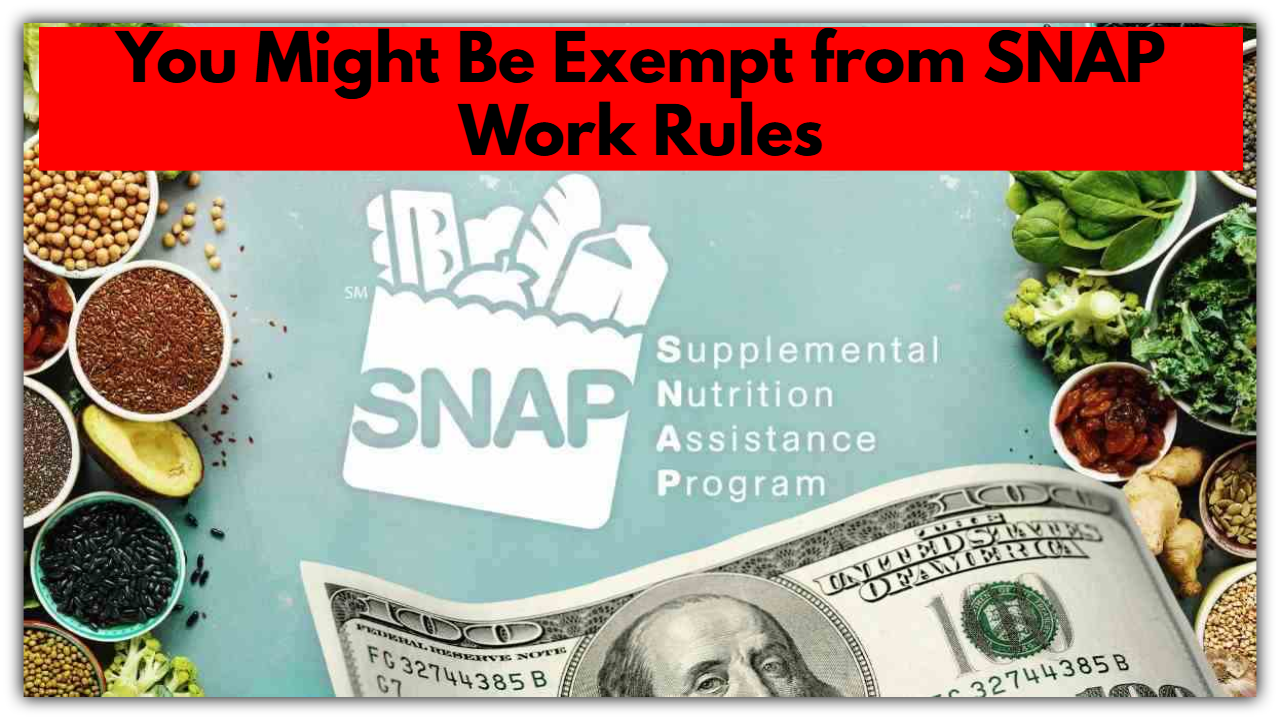You Might Be Exempt from SNAP Work Rules—But No One’s Telling You!
If you’re getting help through SNAP—the program that helps low-income folks afford groceries—you’ve probably heard something about “work requirements.” It can sound a little intimidating, especially if you’re already juggling a lot. But here’s the good news:
Not everyone has to meet these rules.
There are lots of exceptions, and chances are, you or someone you know might already qualify for one.
Let’s walk through it in plain language—no confusing government talk here.
First Off: What Are These “Work Requirements” Anyway?
There are actually two main sets of rules, depending on your age and family situation:
-
General SNAP work rules: These usually apply to adults ages 16 to 59.
-
Stricter ABAWD rules (that’s short for “Able-Bodied Adults Without Dependents”): These affect folks 18 to 54 who don’t have kids or other people depending on them.
If you fall into one of those groups, the government says you should be working, job hunting, or doing some kind of work-related activity to keep getting SNAP benefits. BUT… there are lots of reasons why you might not have to.
You Might Be Exempt If…
Here’s who doesn’t have to meet the general SNAP work rules:
-
You’re already working enough.
If you’re working 30 hours or more per week (or earning the equivalent), you’re good. No extra requirements. -
You’re caring for a young child or someone who needs help.
Got a kid under 6? Taking care of an elderly parent or someone who’s disabled? You’re likely exempt. -
You have a physical or mental health condition.
Whether it’s short-term or something ongoing, if your health makes working difficult, you can be excused. You may need a doctor’s note. -
You’re in school or training.
Enrolled at least half-time in school, college, or a job training program? That counts. -
You’re in a treatment program.
If you’re part of a drug or alcohol recovery program, you’re not expected to meet the work rules. -
You’re already following work rules through another program.
For example, if you’re getting unemployment benefits and following their job search steps, SNAP won’t double up on you.
Stricter ABAWD Rules—And Who’s Exempt from Those
Now, if you’re between 18 and 54, don’t have kids, and aren’t already exempt under the general rules, SNAP might say:
You can only get benefits for 3 months every 3 years—unless you’re working or doing approved activities at least 80 hours a month.
BUT—you may still be exempt if:
-
You’re dealing with a health issue (physical or mental) that makes it hard to work
-
You’re pregnant
-
You live with a child under 18, even if they aren’t your own
-
You’re a veteran
-
You’re homeless or don’t have a stable place to live
-
You were in foster care when you turned 18 and are now 24 or younger
These last three were added in 2023 under a law called the Fiscal Responsibility Act, so they’re still fairly new.
One More Thing: Each State Is a Little Different
Even though these are the federal rules, each state runs its own SNAP program—so some things may vary depending on where you live. Some states make it easier to qualify for an exemption, and some areas with high unemployment may waive work rules altogether.
Bottom line:
If you’re not sure where you stand, don’t guess. Call your local SNAP office, tell them your situation, and ask if you’re exempt. You might be surprised how many people qualify without realizing it.
Why This Matters
Let’s be real: life is already hard enough. If you’re working, looking for work, dealing with health issues, or trying to care for your family—keeping your SNAP benefits shouldn’t be another struggle.
Knowing whether you’re exempt can save you a lot of stress, paperwork, and confusion.
So if you think you might qualify, speak up and get the support you need.



Comments are closed, but trackbacks and pingbacks are open.